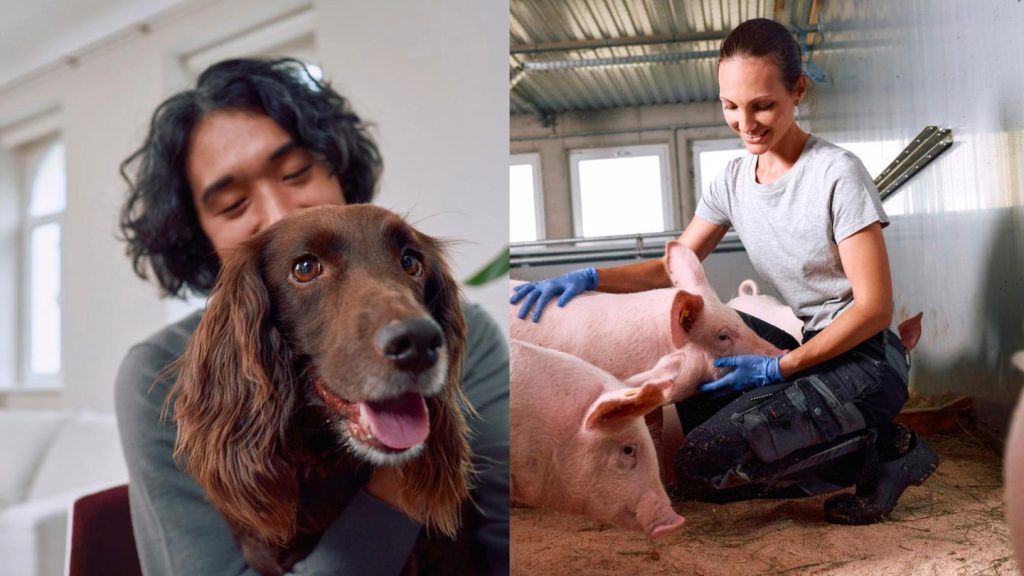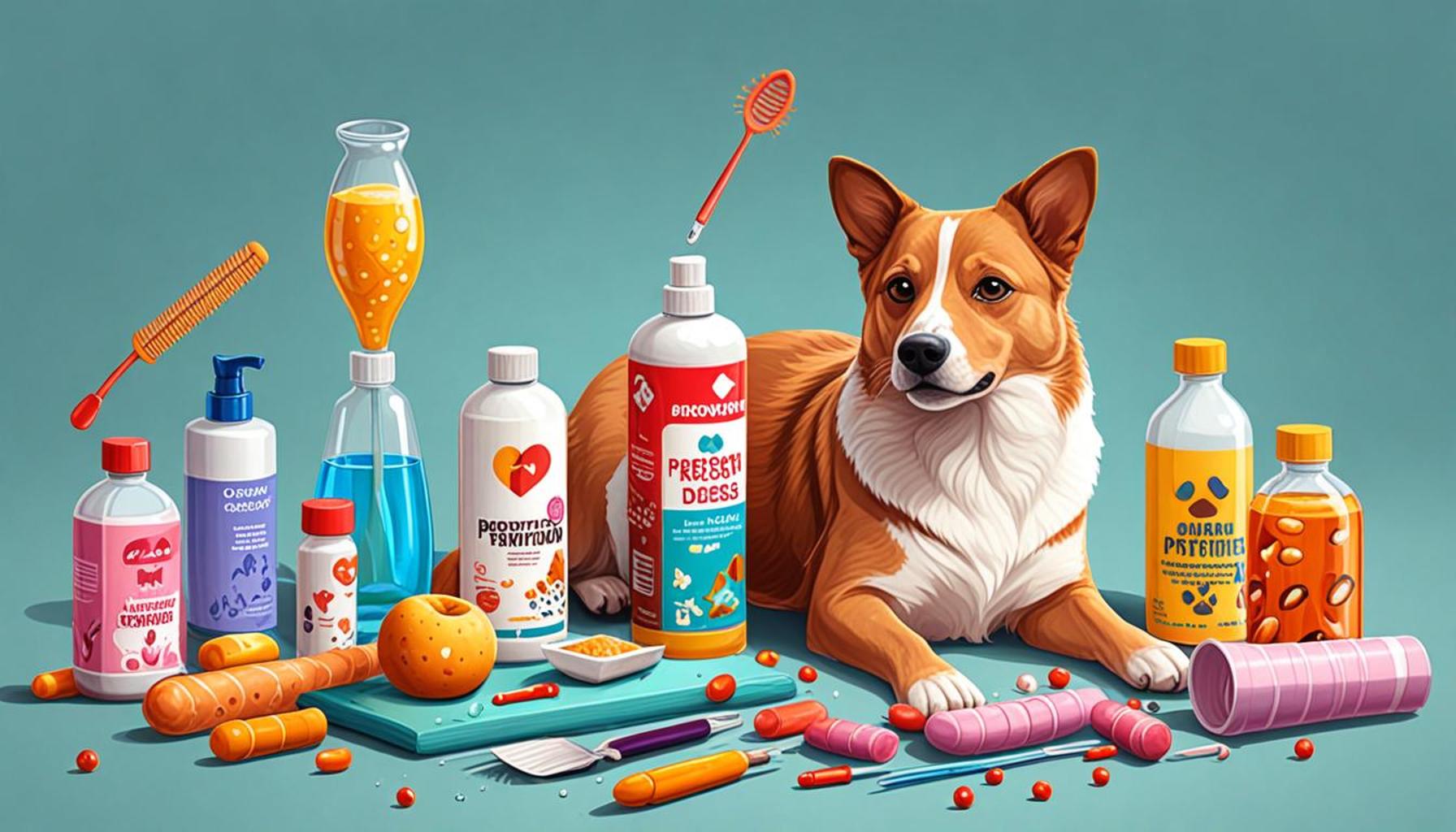Prevention of Common Diseases in Pets: Vaccines and Essential Care

Safeguarding Your Furry Friends
As devoted pet owners, prioritizing the health and happiness of our beloved companions is vitally important. The world of veterinary medicine has made tremendous strides in recent years, enabling us to proactively combat common diseases that can pose serious threats to our pets. Many of these illnesses are not only preventable but can often be avoided through the right vaccination protocols and essential care. Thus, understanding how to protect and maintain the health of your pet is crucial for their longevity and quality of life.
Key Factors in Preventative Care
Vaccines are a cornerstone of preventative health care for pets, providing essential protection against several life-threatening diseases. Among these, some vaccines are deemed vital:
- Distemper: Caused by a highly contagious virus, distemper can lead to serious neurological complications and is often fatal. Early vaccination is crucial, particularly for puppies.
- Parvovirus: This virus predominantly affects young dogs and can result in severe gastrointestinal distress, often leading to dehydration and, if left untreated, death. A series of vaccinations starts as early as six weeks of age to bolster their defenses.
- Rabies: Rabies is a zoonotic disease that affects both animals and humans, making it imperative for pet owners to ensure their furry friends are vaccinated. In many states, rabies vaccinations are required by law.
However, safeguarding your pet goes beyond vaccinations. A comprehensive, proactive approach to pet care includes several critical components:
- Regular Vet Checkups: Routine examinations enable veterinarians to detect potential health issues before they become serious, ensuring timely intervention. Schedule annual check-ups, or biannual for older pets, to monitor their health effectively.
- Proper Nutrition: A balanced diet is essential for building a robust immune system. Consult with a vet to determine the appropriate diet tailored to your pet’s age, size, and specific needs. High-quality pet foods can significantly impact their overall health and energy levels.
- Exercise: Regular physical activity is essential for maintaining a healthy weight and reducing anxiety in pets. Activities such as daily walks, playtime, and agility training can enrich their lives, improve mental health, and strengthen the bond with their owners.
Exploring these preventative measures not only enhances your pet’s health outcomes but can also foster a more rewarding relationship between you and your furry friend. By investing time and effort in understanding and implementing preventative care, you maximize the chances of offering a happier, healthier life for your four-legged companions. In doing so, you empower yourself as a responsible pet parent, ready to tackle the myriad of challenges that may arise along the way.
DIVE DEEPER: Click here for essential insights

Understanding Vaccination Protocols
Vaccination plays a pivotal role in the prevention of common diseases in pets, acting as the first line of defense against potentially life-threatening ailments. Pet owners must be well-informed about the various types of vaccines available and the recommended schedules specific to their pets. For instance, the core vaccines for dogs typically include those against distemper, parvovirus, adenovirus, and rabies, while cats require protection from feline viral rhinotracheitis, calicivirus, panleukopenia, and rabies. Understanding which vaccines are necessary can help pet owners make informed decisions at different stages of their pets’ lives.
Essential Vaccination Guidelines
Veterinarians recommend starting vaccinations in puppies and kittens, usually around six to eight weeks of age, followed by booster shots that continue until they reach approximately sixteen weeks old. These early vaccinations are critical, as young animals are especially vulnerable to diseases due to their developing immune systems. As pets grow, regular booster shots are needed to maintain immunity.
Many factors can influence the vaccination schedule, including the pet’s breed, lifestyle, and exposure to other animals. For example, pets that frequently interact with other animals at parks or boarding facilities may be at higher risk of contracting diseases and may need a tailored vaccination plan to enhance their protection. It is essential for pet owners to engage in open discussions with their veterinarians to create an individualized approach that fulfills their pets’ unique health requirements.
- Understanding the Risks: Recognizing the symptoms of common diseases can prompt early veterinary care. For instance, signs of parvovirus include severe vomiting and lethargy, while distemper may present as a combination of respiratory and gastrointestinal symptoms.
- Staying Up-to-Date: Keeping a record of vaccination dates and reminders can be incredibly beneficial. Many veterinary offices provide reminder services to ensure pets do not miss essential vaccinations.
- Acknowledging Side Effects: Like any medical treatment, vaccines can cause side effects, though most are mild and temporary. A low-grade fever or slight lethargy is common after vaccination. However, it is crucial for pet owners to be aware of more severe allergic reactions, which, although rare, can occur. Prompt veterinary consultation is recommended if adverse symptoms are noted.
By educating yourself on the necessary vaccinations and their importance, you can actively participate in safeguarding your pet’s health. This level of engagement not only increases their chances of avoiding preventable diseases but also enriches the bond between pet and owner through proactive care. Understanding these aspects of preventative care sets the foundation for a resilient and healthy life for your furry friend, ensuring that they enjoy many happy years by your side.
Vaccination Schedules and Essential Care
Understanding the appropriate vaccination schedule for your pet is crucial in preventing diseases effectively. Vaccinations not only fortify your pet’s immune system but also play a significant role in safeguarding public health by preventing zoonotic diseases. For puppies and kittens, a series of initial vaccinations typically commence between six to eight weeks of age, followed by boosters to ensure long-lasting immunity. Moreover, regular veterinary check-ups are essential. These visits allow for the assessment of overall health and enable the vet to recommend necessary vaccinations, treatments, and preventive measures such as parasite control strategies. Timely dental care is also integral in preventing common oral diseases that can lead to serious health problems.
Common Vaccines and Their Benefits
A strong understanding of common vaccines, such as rabies, distemper, and parvovirus, helps pet owners become proactive in their pets’ health. For instance, the rabies vaccine is not only required by law but is also critical in preventing a potentially fatal disease for both pets and humans. Vaccines like Bordetella and leptospirosis are also essential for pets that frequently interact with others, particularly in communal settings.In addition to vaccines, spaying or neutering pets is advisable to eliminate the risk of certain cancers and prevent unwanted litters. Along with these measures, maintaining a balanced diet and ensuring regular exercise are fundamental in enhancing your pet’s quality of life and longevity.
| Category | Description |
|---|---|
| Vaccination | Essential to prevent diseases like rabies and distemper. |
| Regular Veterinary Check-ups | Allows for monitoring health and timely vaccinations. |
| Balanced Diet | Key to maintaining health and preventing obesity. |
| Spaying/Neutering | Prevents specific cancers and curtails population growth. |
The outlined preventive measures and vaccinations are instrumental in ensuring that your pet remains healthy and thriving. Investing in strong preventive care opens the doorway to a fulfilling life for your four-legged family members.
DIVE DEEPER: Click here to learn more
The Role of Essential Care in Disease Prevention
While vaccines are fundamental in protecting pets from communicable diseases, essential care practices equally contribute to maintaining their overall health and well-being. Regular veterinary check-ups, proper nutrition, and preventive treatments such as parasite control are key components of a comprehensive health strategy for pets. With a proactive approach, pet owners can significantly reduce the risk of common ailments that may otherwise threaten their furry companions.
Regular Veterinary Check-Ups
Make routine veterinary visits a priority, as they serve as a preventive measure to catch any emerging health issues early. Veterinarians can perform thorough examinations, including dental checks, skin assessments, and overall physical evaluations. By detecting issues like dental disease, obesity, or infections early, owners can intervene before they escalate into more serious conditions that may require extensive treatment or even surgery.
These visits also provide an opportunity to discuss the pet’s lifestyle and any behavioral changes, which could indicate underlying health problems. Additionally, annual blood work can identify potential health risks related to organ function or systemic diseases, allowing for timely management.
Optimal Nutrition and Weight Management
Providing pets with a balanced diet tailored to their specific needs plays a crucial role in preventing diseases. An ideal pet diet should provide essential nutrients, promote healthy body weight, and support immunity. Overweight pets can suffer from a variety of health complications, including diabetes, joint issues, and even heart disease. Thus, owners must monitor their pet’s weight and body condition regularly, adjusting feeding schedules and portion sizes accordingly.
Choosing high-quality pet food that meets the standards established by organizations like the Association of American Feed Control Officials (AAFCO) ensures that your pet receives a diet with the necessary nutrients. Consulting a veterinarian can also help in selecting the most appropriate diet based on factors such as age, breed, and any existing health concerns.
Preventive Treatments Against Parasites
Parasites, including fleas, ticks, and heartworms, pose significant health risks to pets and can lead to serious illnesses. For example, heartworm disease, transmitted through mosquito bites, can cause severe lung and heart damage, ultimately being fatal if not treated timely. Regular preventive measures, such as administering year-round heartworm medication and routine flea and tick treatments, are pivotal in safeguarding pets from these common yet dangerous parasites.
- Monitoring for Signs: Keep an eye on your pet for any signs of parasite infestations, such as excessive scratching, hair loss, or lethargy. Early intervention can mitigate the severity of these issues.
- Consulting Professionals: Consult with your veterinarian about the most effective parasite prevention plans, which may vary based on your geographical location and lifestyle factors such as outdoor activities.
- Environmental Management: Keep your pet’s environment clean and sanitized, as this can significantly cut down on parasite populations at home. Regular cleaning of bedding, rugs, and outdoor areas reduces the likelihood of infestations.
Implementing these essential care strategies ensures that pets not only receive the necessary vaccinations but also undergo a holistic regimen that promotes their health throughout their lives. By working closely with veterinarians, pet owners can create a comprehensive health plan that keeps their beloved animals safe and healthy, allowing them to thrive in a loving environment.
DISCOVER MORE: Click here to learn effective techniques
Conclusion: A Holistic Approach to Pet Health
In the journey of pet ownership, understanding the prevention of common diseases through proper vaccines and essential care is paramount. By prioritizing vaccination schedules, pet owners create a first line of defense against infectious diseases that can severely impact their furry companions. However, vaccinations alone cannot ensure 100% protection; thus, incorporating essential care practices into daily routines becomes essential.
Regular veterinary check-ups enable early detection of health issues, enhancing the potential for effective intervention before they evolve into complex problems. Maintaining a appropriate diet and managing weight is equally critical, as proper nutrition directly influences a pet’s susceptibility to various diseases. Moreover, implementing preventive measures against parasites serves as a safeguard against conditions that can lead to major health complications.
As responsible pet owners, it is vital to create a comprehensive health strategy that melds proactive veterinary care, optimal nutrition, and rigorous parasite management. This holistic approach not only promotes longevity but also enriches the overall quality of life for pets. As research progresses in veterinary medicine, staying informed about the latest advancements in animal healthcare remains crucial. Ultimately, an investment in preventive care means more joyful moments spent with our pets and fewer health concerns in the long run. By embracing this comprehensive framework, owners can ensure their pets thrive in a loving and healthy environment.


